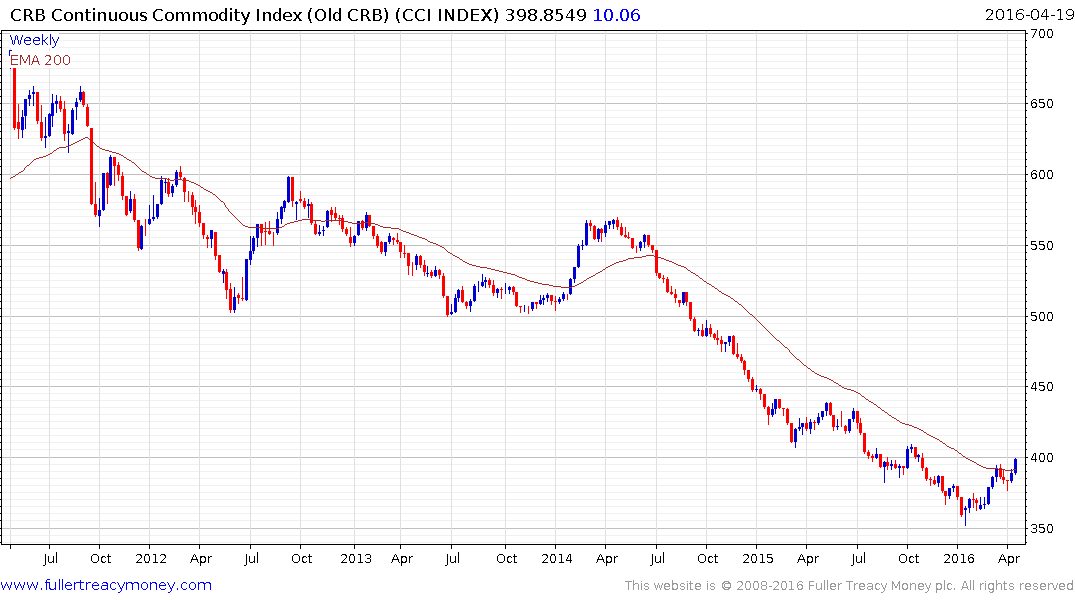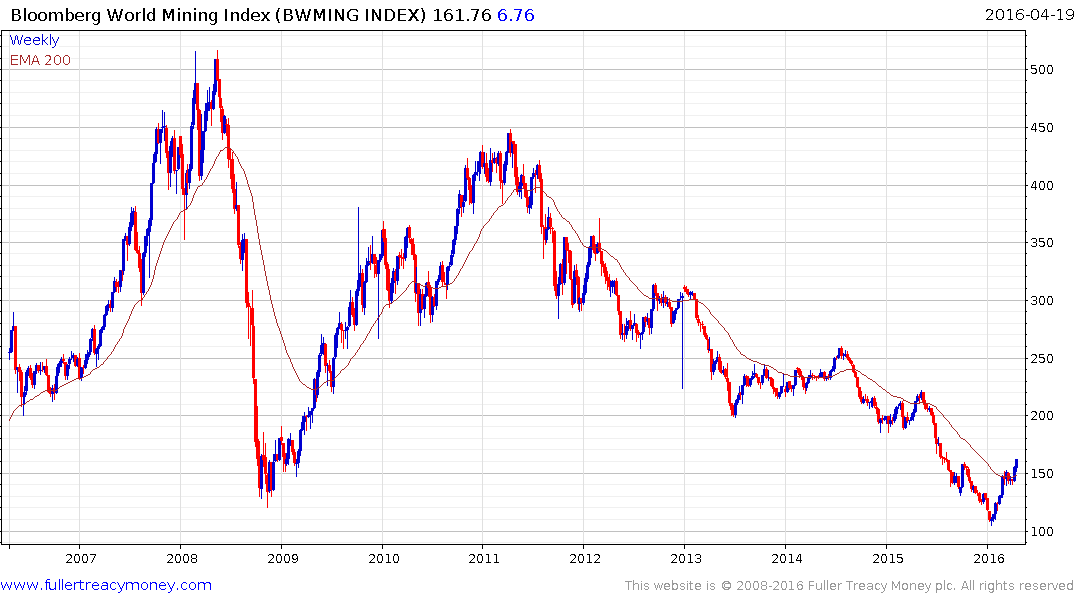Mining the balance sheets
Thanks to a subscriber for this report from Goldman Sachs dated February 29th. Here is a section:
Our commodities analysts believe that China’s demand for commodities will normalise to a level consistent with its GDP/capita, as the economy transitions from investment-led (i.e. where the government pays) to consumption-led (i.e. where the consumer pays). In short, fewer roads, buildings, bridges and airports, and more cars, air conditions, fridges and the like. This part of an economy’s development is less commodity-intensive, and we expect China’s commodity demand evolution to follow a more conventional path. This suggests a significantly lower level of demand than that seen through 2003-2014.
The implication for the supply-demand balances of the major metals is that without a significant change on the supply-side of the equation, oversupply will widen and prices will fall further
Which brings the argument back to liquidity. We would argue that mines don’t close through choice, but because they have to. Typically, this point comes when a company runs out of funds to meet its obligations (liquidity). We have seen African Minerals and London Mining join and leave the London stock market and their mines close - the capital markets were not prepared to continue to fund losses.
Ultimately, if demand does not return, then the industry’s current position could prove to be something of a holding pattern. Keep producing, drive more productivity and cost reduction and wait for the capital markets to pass judgement when the more weakly positioned companies need to refinance.
The role of energy prices in the total cost of production for mining operations is a topic that does not appear to be covered by this report. Yet, it is a major consideration for miners and declining oil prices were a key factor in the ability of very marginal operations remaining viable. That is one of the primary reasons why the rebound in oil prices has been a positive catalyst for commodities.
Taken in tandem with the fact that major rationalisation has been implemented right across the sector, shares had priced in a lot of the bad news already in the public arena. There is scope for additional rebounds as a worst case scenario looks less likely.

The Continuous Commodity Index has now broken its downtrend and a sustained move below the trend mean would be required to question that view.

The well diversified Bloomberg World Mining Index has now broken out to new recovery highs. This is not the first time it has sustained a move above the trend mean in the course of what has been a five-year downtrend. However this rally is occurring from a much lower level and a sustained move below 150 would be required to question medium-term recovery potential.


